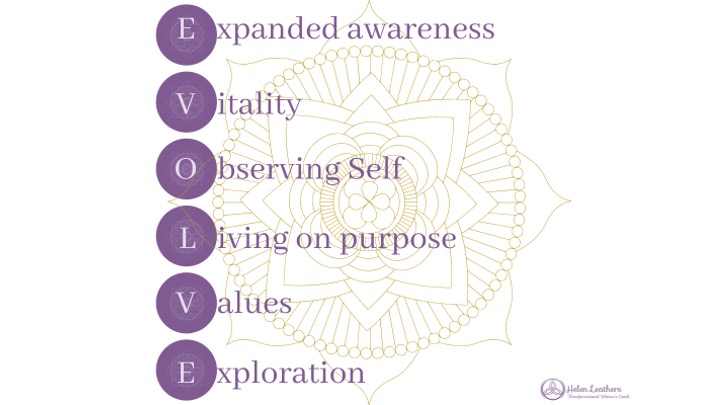Transpersonal Coaching, which is often referred to as Spiritual Coaching, sits on the periphery of mainstream coaching, and is often regarded as a little bit too woo for some coaches to consider.
In our podcast episode on this coaching approach we explore what it is, what it’s not and what it could be. We also consider why some people might choose to engage with Transpersonal Coaching, either as a coaching approach in its own right, or as an approach to borrow from, weaving elements of it into an integrated, holistic approach. You can listen to the podcast here, or read our summary in this article.
What is Transpersonal Coaching?
Transpersonal is often defined as ‘beyond the ego’ where the ego is our human consciousness. Here are some explanations of Transpersonal coaching from The Transpersonal Coaching Handbook which is provided as part of The Alef Trust’s masters level training course.
“transpersonal coaching is involving conversational and introspective processes to shift the client’s attention in a manner that, that creates space in the consciousness for inspiration and transformation to occur naturally.
“It works with the unconscious processes that are at the root of most of our problems in life, yet does so in a natural conversational way. It identifies unconscious triggers and patterns that give rise to one’s thoughts, feelings, behaviors and resulting circumstances.”
And they say it is an holistic approach to coaching.
While transpersonal coaching sounds very similar to transformational coaching, it differentiates itself by exploring concepts of transcendent experiences and interconnectedness to something greater, whatever that means for the individual.
Expanding our Awareness
The idea of the “expanded self” is particularly significant in transpersonal coaching. Techniques like visualisation, meditation, and open awareness are integral, fostering a setting where clients can imagine their ideal futures and tap in to a stronger sense of connection, purpose and alignment. This can help clients to access more inner and outer resources; psychological resources and spiritual resources that will help them to become their best and true self.
But the expansive sense of self and leaning towards transcendent experiences is a really interesting aspect of the approach. Certainly within the course that the Alef Trust offer, there are modules on shamanic practices and actually also discussion around the use of hallucinogenic substances to create and enhance these experiences.
Note from Helen: These experiences can be created through meditation, chanting, dancing, drumming and deep relaxation practices that are often a part of traditional and shamanic practices. I don’t personally believe hallucinogenic substances are necessary to obtain these states, but I felt it only fair to warn you that in exploring this topic you may come across these ideas.
You could easily have a transpersonal approach to coaching while using many, if not all of the tools and ideas we cover on our transformational coaching diploma. Helen created the EVOLVE framework as a guide to this type of coaching. It’s not a model to work through in the way that you would work through TOMSCODE but a framework to encompass the elements that she felt were important in this approach:
The E.V.O.L.V.E. Framework: A Practical Model for Spiritual or Transpersonal Coaching
For coaches interested in incorporating a transpersonal or spiritual approach to their coaching, the E.V.O.L.V.E. model focuses on six essential aspects of a transpersonal approach to coaching:
- Expanded Awareness – Engaging in practices like meditation to access broader states of consciousness and deeper personal insight.
- Vitality – Prioritising nourishment for the mind, body, and spirit, so clients maintain energy and feel connected to their spiritual self.
- Observation of Self – Cultivating self-awareness to understand and transform behaviour patterns, habits, and emotional responses.
- Living on Purpose – Helping clients discover and align with their life’s meaning and purpose, often closely tied to their values and spiritual beliefs.
- Values – Recognising and integrating personal values, allowing clients to act in alignment with what truly matters to them.
- Exploration – Encouraging a continual quest for self-understanding, spiritual growth, and intellectual development.
The E.V.O.L.V.E. framework illustrates that transpersonal coaching can seamlessly integrate into transformational coaching. Even without an overt focus on spirituality, elements of this framework can enrich any coaching session.
When and Why Transpersonal Coaching is Useful
It’s highly likely, that if you’re drawn to work in this way, it’s because you probably have a strong spiritual side yourself, a strong faith, it’s part of who you are. And that could form your identity as a coach and be an important element in your marketing and branding. Then people who also have that same interest and that same belief system will be drawn to you.
Or it may be that you don’t want to market yourself as such, but that you can be aware of and adopt this approach if it is needed. For example, when a client specifically wants to explore something about their spirituality; whether that’s living a more spiritual life, developing a spiritual practice, considering or reflecting on their own spiritual philosophy.
If you are a transpersonal coach or a spiritual coach, then you are going to attract people that would like to talk about the spiritual side of their life. Equally, they might want to talk about something very tangible in their life, but the spiritual part is important to them to they want to work with a coach that understands that.
The Importance of Clarity in Coaching Offerings – something to be aware of
The term “spiritual coach” can sometimes lead to misunderstandings. Potential clients might encounter various interpretations of spiritual coaching, ranging from New Age practices like card readings to religious guidance or teaching. If you find a coach that identifies as a spiritual or transpersonal coach, it’s essential that you check in with them that what they are actually offering is what you are looking for. True coaching, at its heart, involves creating a safe, non-judgmental space for clients to explore their own beliefs without the coach’s own views being known to the individual.
Transpersonal coaching offers a powerful, holistic path for individuals seeking personal transformation that aligns with their spiritual beliefs. For coaches, it provides a way to create a practice that integrates their own journey and interests in spirituality with proven coaching methodologies.

Our transformational coaching methodologies can very much contribute to this approach, while underpinning it with psychological theory. You can find out more about our Transformational Coaching Diploma and the approaches we cover here.



